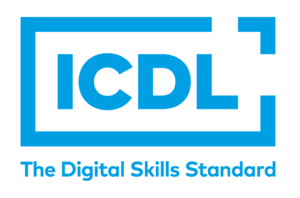
Big Data
Start on:
Contact us
Duration:
2 days
Study Mode:
Online / Blended Weekend intensive delivery
TBC

ICDL ASIA
ICDL Foundation is an international organisation dedicated to raising digital competence standards in the workforce, education and society. Our certification programs, delivered through an active network in more than 100 countries, enable individuals and organisations to assess, build and certify their competence in the use of computers and digital tools to the globally-recognised ICDL standard.
As a non-profit social enterprise, ICDL Foundation benefits from the unique support of experts from national computer societies and partners worldwide to develop vendor-independent standards that define the skills and knowledge required to use digital technology effectively. We work with education and training partners, local and regional authorities, national governments, international development organisations as well as public and private sector employers in all sectors, in the delivery of our programs.
The quality and reputation of ICDL is built on over twenty years of experience in delivering our certification programs to over 16 million people and in more than 40 languages worldwide, with more than 2.5 million ICDL tests taken annually. Our success is maintained by our ongoing innovation in certification program development, our commitment to rigorous test design methodologies, and consistent adherence to our quality assurance standards.
ICDL Foundation supports the initiatives of National Operators of the program in Europe and the Arab States from our headquarters in Dublin, Ireland and our ICDL Europe office in Brussels, Belgium. We have also established three regional operations – ICDL Africa (based in Rwanda), ICDL Asia (based in Singapore) and ICDL Americas (based in Panama). All ICDL Foundation operations work closely with regional, national and local partners to develop the global network of ICDL Accredited Test Centres.
Big Data
This module introduces Big Data, a term which relates to the management and analysis of sets of data that are typically too large for traditional data-processing software.
Most businesses and organizations deal with large volumes of data on a day to day basis. It is what organizations do with the data that matters. Big data can be analyzed for insights that lead to better decisions and strategic business moves.
This module is suitable for a wide range of candidates; for example, non-technical professionals who wish to build and demonstrate an understanding of Big Data, facilitating engagement with their technical colleagues or their suppliers, or students who wish to add general technical knowledge to sector-specific or general studies.
Module Overview
| Category | Content |
|---|---|
| What is big data? |
|
| The big data environment |
|
| Big data in practice |
|
| Big data adoption |
|
Learning outcomes
The Big Data module consists of e-learning followed by a brief certification test. Together, these components deliver a short, focused professional development solution. On completion, candidates will be able to:
- understand the term big data and its evolution, and recognise drivers behind its expansion
- recognise key aspects of big data relating to storage technologies, analysis, and visualisation
- recognise examples of big data implementation in a range of sectors
- identify considerations for adoption of big data, including investment, practical challenges, business potential, and ethical issues
- recognise steps for exploiting big data in a specific scenario or situation
ICDL Big Data
Ready to apply?
Still not convinced?
